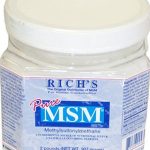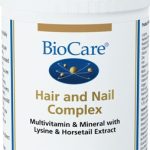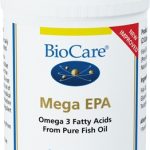Your first reaction may be to scoff at the idea, but you shouldn’t; evidence suggests that taking the correct, targeted nutritional supplements may help with hair loss. Not to mention the fact that we’ve received strong, positive anecdotal evidence as to their efficacy in this area – especially from women customers.
But just how could boosting your nutritional intake prevent or reduce you losing those much-coveted curls up on top? Well, it all comes down to how our bodies, practically every part of them (from the individual systems to the skin, the brain to the heart and so on), require a regular, high level of vitamins and minerals to function well and remain healthy. It naturally follows then, when you think about it, that supplying your body with these natural well being boosters – or, if you prefer, nutrient deficiency products – should be great for preserving your hair and keeping it healthy and lustrous.
Indeed, the following nutrients are all considered important contributors to good ‘hair health’:
- Iron – driving up the body’s iron levels is probably recommended for most people, as iron deficiency is very common, yet from the standpoint of hair, this nutrient certainly appears to be important; a recent study found that, while the role iron deficiency plays in hair loss isn’t altogether clear, getting more iron may contribute to putting this right, especially among premenopausal women1
- Omega-3 fatty acids – you’re probably forever hearing how oily fish and the likes of walnuts and flaxseeds are good for you and that’s because they contain these terrifically healthy fatty acids; indeed, research suggests daily consumption of them helps to hydrate hair and scalp, which aids in preserving hair bulb integrity2
- Silica – a major component of hair (per gram there’s almost as much of it in healthy hair as there is in healthy bones), silica, it’s believed, aids in the prevention of baldness by stimulating natural hair growth, thus helping to ensure health and shine
- Sulphur – a key ingredient of keratin, which itself is crucial for the growth and preservation of hair, skin and nails, sulphur plays a pivotal role in giving hair its strength and elasticity (sulphur deficiency can be a factor in brittle hair that easily breaks); it’s for good reason then that sulphur’s often referred to as one of the building blocks of hair
- Zinc – the results of a recent study suggest that the levels of zinc in the blood of those experiencing hair loss is lower than those not, the conclusion being that disturbance of zinc metabolism may be involved in the thinning of hair3.
Prevention/ reduction via supplements
As noted then, boosting your regular intake of the above nutrients could well go some way to reviving your fortunes when it comes to preserving the health of and keeping your hair. Needless to say, taking precautions such as avoiding smoking and unprotected exposure to sun and being sure to undertake proper, gentle hair care are all strongly advised too.
It should be noted, though, that when you’re trying to correct hair loss it would be foolish to expect instant, amazing results – any regime is likely to take a little time (perhaps up to three months) before you can realistically measure whether it’s working or not. And, while we’d like to draw your attention to the following supplements available through us at The Finchley Clinic as hair loss products, we wouldn’t claim one is definitely better than the other; some will likely work better for some people, others for others. However, as mentioned, our customer feedback leads us to highly recommend them:
MSM Powder– ideal for a sulphur deficiency, this supplement may well help with hair and skin issues, as well as arthritis, joint pain, inflammatory problems, leaky gut, constipation, candida infections and asthma.
Hair & Nail Complex– among other things, this product specifically produced for hair and nail care comprises iron, zinc and horsetail (a natural form of silica).
Mega EPA 1000 (fish oil concentrate) – a great source for Omega-3 fatty acids, this product (thanks to a unique lipase enzyme process) offers high quality and highly potent fish oil in capsule form.
References:
1. Park S. Y., Na S. Y., Kim. J. H., Cho S. and Lee J. H. ‘Iron Plays a Certain Role in Patterned Hair Loss’. J Korean Med Sci. Jun 2013; 28 (6): 934–938.
2. Goluch-Koniuszy Z. S. ‘Nutrition of women with hair loss problem during the period of menopause’. Prz Menopauzalny. Mar 2016; 15 (1): 56–61.
3. Kil M. S., Kim C. W. and Kim S. S. ‘Analysis of serum zinc and copper concentrations in hair loss’. Ann Dermatol. Nov 2013; 25 (4): 405-9.



